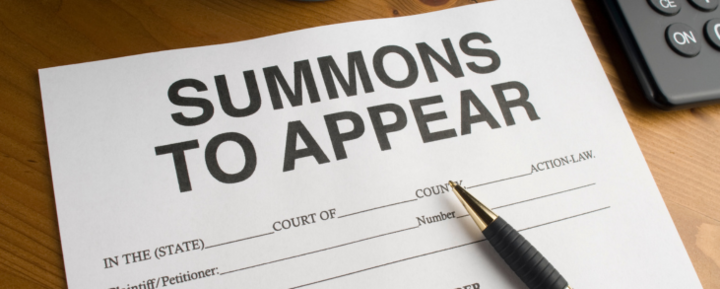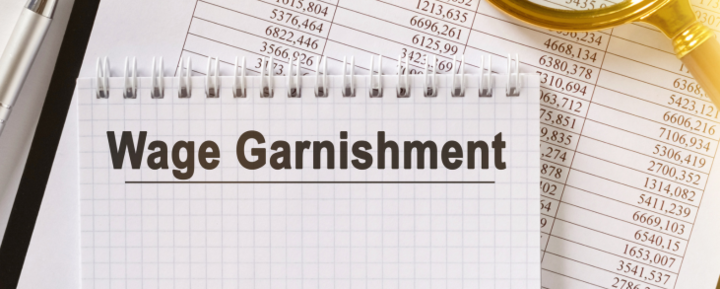If you’re struggling financially and bogged down by debt, you may believe bankruptcy is your only way out. But because of its long-lasting effects, bankruptcy is a less-than-ideal option.
While bankruptcy does have its advantages, it should generally be considered a last resort. Considering the alternatives to bankruptcy can help you get out of debt without the same long-term damage of bankruptcy.
What is Bankruptcy?
A common misconception about bankruptcy is that it means you have no money. This isn’t necessarily the case. An individual would file for bankruptcy if they’re feeling as though they’re past the point of no return with their debt. Individuals typically file one of two common types of bankruptcy:
- Chapter 7 bankruptcy: Also known as “liquidation” bankruptcy, Chapter 7 bankruptcy essentially wipes your debt clean. This type is generally meant for individuals with limited income. In Chapter 7, you sell your assets in order to pay off your debts.
- Chapter 13 bankruptcy: Chapter 13 bankruptcy is often referred to as “reorganization” bankruptcy. To file bankruptcy, you must take a “means” test to assess your assets and income. Chapter 13 bankruptcy is generally for those with an income too high for Chapter 7. In this type, the court will order a debt repayment plan that typically takes three to five years to complete.
How Do I Know I Need Debt Help?
If you’re considering bankruptcy, you likely feel overwhelmed by debt. That feeling in and of itself is reason to seek debt help. But many signs can alert you to a debt problem, including:
- Overspending
- Being denied for credit or loans
- Avoiding opening bills
- Lying about your money situation
- Regular missing payments or making late or partial payments
- Paying credit with credit
If you’re looking for more concrete, quantifiable markers, the following can be reason to seek debt help:
- You don’t believe you have the ability to pay off your unsecured debts (credit cards, personal loans, medical bills) on your own within five years.
- Your unpaid debt totals more than half of your gross income.
Admitting that you need help is the first step on the path to unburdening yourself from this stressful financial situation. It’s important to remember, though, that the most effective way to improve your situation, whether you file for bankruptcy or pursue an alternative, is to address the root cause of your debt struggles.
Why Should I Avoid Bankruptcy?
Wiping your debts clean or getting some guidance on how to repay may sound tempting. However, the negative effects often outweigh the benefits. In Chapter 7, you may be left with almost nothing, depending on how many of your assets you have to sell. With Chapter 13, the process is lengthy and requires using your “disposable income” to make payments.
And arguably worst of all, a bankruptcy can stay on your credit report for up to 10 years. This can be disastrous for your credit and will make it incredibly difficult to qualify for credit cards and loans. Additionally, each type of bankruptcy requires a certain waiting period from the discharge of your bankruptcy before you can apply for a mortgage.
Bankruptcy can also be rather expensive. Chapter 7 typically costs $335 in filing fees, while attorney’s fees average over $1,000. Chapter 13 is $310 to file, with attorney’s fees averaging over $2,500. If you’re already hurting for money, such an expense certainly doesn’t help.
As a result, bankruptcy should typically be a last resort after you’ve explored other alternatives. Fortunately, you have a number of options that may help you avoid filing for bankruptcy.
1. Debt Consolidation
A simple alternative to bankruptcy to explore is debt consolidation. Debt consolidation doesn’t reduce your debt, but it can make it easier to pay off. With debt consolidation, you would take some or all of your debts and place them in a debt consolidation loan, generally an unsecured personal loan. Debt consolidation has a few main benefits:
- Simplifying your monthly bill pay: Now instead of many bills to keep track of, you’ll just have one. This can be especially helpful if you have a tendency to miss payments and rack up late fees.
- Potentially lowering your interest rate: This is generally thought of as the biggest benefit of debt consolidation. If you have good credit, the interest rate you’d qualify for may be more favorable than the interest rates you’re paying on your current debt. In particular, personal loan rates are typically lower than credit card interest rates, which can reach over 20 percent. While not reducing your balance, a lower interest rate can help lessen your monthly payments and help you pay less over time.
- A set loan term: Additionally, when you take out a debt consolidation loan, you will make uniform monthly payments for a designated period of time. This can give you the peace of mind to know exactly what you’ll need to pay and when your debt will be completely paid off.
However, as with any alternative to bankruptcy, debt consolidation has its caveats. If you don’t address the root issue causing your debt struggles, which is often a lack of cash flow or overspending, you may take on additional debt separate from your consolidation loan, which can negate the effectiveness of the process.
2. Debt Settlement
Debt settlement can be a favorable alternative because, like with Chapter 7 bankruptcy, it can help provide you with a clean slate. The process involves negotiating your debt for less than you owe. Creditors typically require lump sums to pay off settlements. Creditors generally look for you to be delinquent on debt. As a result, creditors may be more willing to agree to a settlement because they will believe it is the only way they will recoup any of your debt. You can negotiate with creditors yourself, or you can turn to a debt settlement professional.
Debt settlement tends to get a bad rap. But most of the common misconceptions can be debunked:
- Reputable debt settlement companies do exist: They may be difficult to find, but you can find a legitimate debt settlement company. Read online reviews and ask other financial professionals you work with, such as your financial planner or accountant, for a recommendation. Legitimate companies will have a real address and will allow you to speak to a live human on the phone. They also won’t charge you before they’ve done any work for you.
- Your credit may improve: A commonly cited disadvantage of debt settlement is that your credit will suffer. However, if you were already struggling with debt or delinquent on accounts, your credit was likely in trouble to begin with. Though settled debts will be noted as such on your credit report, the reduction of your debt often actually helps your credit improve. Your score will continue to rise after you’ve completed settlement if you continue to keep your utilization low and make payments on time.
However, debt settlement can take time. Working with a professional will also come at a cost.
3. Credit Counseling
Credit counseling can be similar to Chapter 13 bankruptcy but is a much less damaging alternative. With credit counseling, you work with a trained professional to create a debt payment plan. The payment plan typically takes three to five years to complete, just like Chapter 13 bankruptcy. The credit counselor will work with you to examine your budget and find sustainable ways to make your monthly payments. You may make payments into the company, which will then be distributed to your creditors in pre-determined ways. This process can also help address the root cause of your debt, which can help prevent you from making the same mistakes in the future.
Credit counseling can also be done for free — much cheaper than bankruptcy! Look for a reputable nonprofit credit agency. Other companies with flashy advertisements often charge a hefty fee for the same services.
However, credit counseling doesn’t reduce what you owe. It is also often the first step mandated in the bankruptcy filing process. But you can seek this option without filing for bankruptcy.
The Bottom Line
Of course, paying off your debts on your own is the most ideal alternative to bankruptcy. However, if you’re considering bankruptcy, this is likely not an option. Understanding the other paths you can explore can help you make the best decision for you. These alternatives all have their pros and cons, but none are nearly as damaging to your financial future as bankruptcy would be.
If you’re struggling with debt and trying to avoid bankruptcy, the debt professionals at Tayne Law Group are here for you. We can help you find the best option for you and your situation.
Call us for a consultation at 866-890-7337 or fill out our short contact form and we’ll get in touch!





